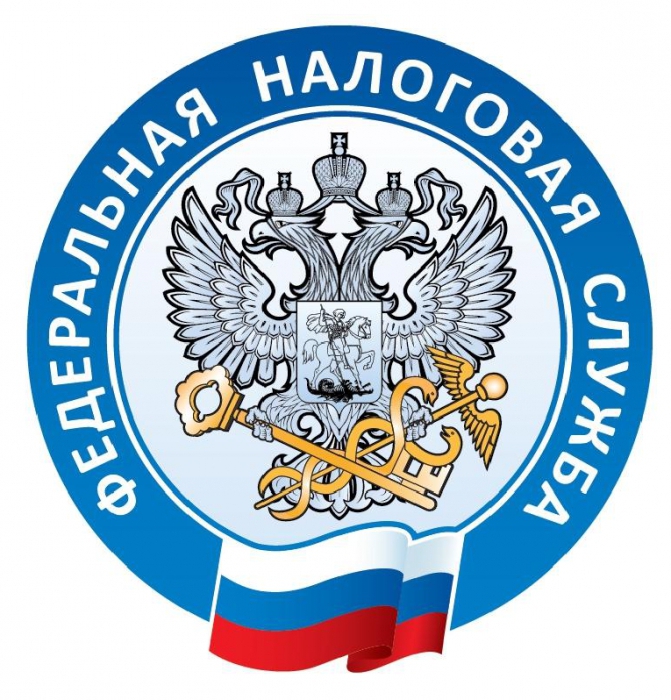Tax deductions are one of the most popular mechanisms of state support for Russian citizens. Too many residents of the Russian Federation have the right to receive them. What kind of opportunities does the Federal Tax Service provide in terms of receiving compensation of this type?
What are the features of specifically social deductions? How easy is it to draw up such payments and what nuances should you take into account when contacting the structures responsible for calculating compensation? How long is social tax deduction is provided to the taxpayer?
What is a tax deduction?

A bit of theory. Every citizen of the Russian Federation who is officially employed pays 13% of the accrued salary to the treasury of his country.
A similar percentage is given to the state by Russians who have received compensation for services provided under civil law agreements.
The same is with "unearned" income (for example, from the sale of property). Almost all Russians, therefore, pay personal income tax - personal income tax.
By default, amounts that are transferred to the treasury are non-refundable.
They are used as a means of replenishing the country's budget. However, citizens of the Russian Federation have a number of legal grounds on which they still have the right to return part of the personal income tax paid from the treasury. The phenomenon in question has a common name - "tax deduction." The state, having determined the right of citizens to receive it, is ready to transfer the amounts due to the structures of the Federal Tax Service to the accounts of personal income tax payers.
There are several reasons for making payments. Citizens who bought an apartment and suffered direct cash expenses can rely on property deduction. There are standard payments guaranteed by economically unprotected categories of Russians. There are citizens entitled to a social tax deduction. We will talk about the features of this type of payments today.
Social deductions: definition and signs
What is the nature of the term "tax social deduction"? There are two main interpretations. According to the first, the whole point is that it relates to the financial expenses of citizens associated with certain social activities. Such as charity, education, retirement benefits, or, for example, medical care.
It can be said that each of these areas has social significance. The well-being of society depends on how things are going in each of them. Another interpretation of the term "tax social deduction" is based on the thesis that all these spheres are commercialized to one degree or another.
In order to reduce the financial burden on certain categories of citizens, the state introduced deductions. Thus, taking care of the stability of the social situation of people who decided to make expenses within the specified areas. There is also a thesis that by introducing deductions of this type, the state stimulates the corresponding activity.
That is, when it comes to charity, a person knows that by contributing a certain amount to a good cause, he will be able to count on compensation for part of it, which, in turn, can again be “reinvested” in the address of those who need help.If a person goes to study, he knows that the state already at the stage of passing training programs will “return” to the citizen a part of the funds spent by him on his personal development, on social and professional growth.
Classification of Social Deductions
The main criterion for the classification of social deductions existing in Russia is the type of expenses committed by a citizen. What can we talk about here? In accordance with the laws of the Russian Federation, the costs that give the basis for calculating social deductions are considered to be the following types of expenses:
- for charity needs;
- to pay for the passage of educational programs by children;
- for treatment;
- on interaction with NPFs and insurance companies in the framework of pension programs.
The essence of the deductions of this type is to provide certain categories of economic preferences for citizens of those categories that are traditionally considered to be socially unprotected.
Features of social type deductions
The main feature of the deductions of the indicated type (in comparison with payments belonging to the category of standard and property) is that they can be applied only if the personal income tax was calculated on the basis of the personal income of the citizen. Taxes paid on other income are not taken into account.
Another feature is that social tax deductions are provided only to residents of the Russian Federation (citizens who have lived in Russia for more than 183 days in the 12 months preceding the time they apply for payment to the Federal Tax Service).
Another important characteristic of social type deductions is that the applicant may be the person who actually paid the expenses (and not the one who used the services given in return for the transferred funds). That is, for example, when it comes to paying for studies - the deduction can be received by the parents, not the student himself.
We also consider briefly the features of calculating deductions on two other grounds.
Tuition deduction
The receipt of compensation from the Federal Tax Service related to training costs is calculated on the following grounds:
- expenses for the payment of services of educational organizations, provided that the citizen undergoes courses and training programs;
- tuition for children;
- educational expenses for brothers and sisters.
The age limit for the categories of persons specified in the second and third paragraph is 24 years.

Mandatory conditions that determine the right to such a measure of state support as the social tax deduction for training: the availability of official employment and the fact of personal payment for the services of educational institutions. If, for example, the employer company transferred funds for training, then the Federal Tax Service does not charge any compensation.
The maximum amount of deduction for training depends on who exactly took part in the educational program. If the taxpayer did it personally, then he has the right to rely on compensation, based on current legislative standards, in the amount of up to 15 thousand 600 rubles. A similar amount is set for citizens who paid for the training of brothers and sisters. In turn, when it comes to the compensation of expenses for the education of children, then the limit value of the deduction is much less - 6 thousand 500 rubles. (for each child).
Actual payout is calculated using a “two-step” formula. First, an amount equal to 13% of all citizen's expenses for tuition is determined. Then it is compared with the personal income tax calculated from the official income of the payer for the three years preceding when the application is submitted (a social tax deduction is issued annually) to the Federal Tax Service.
If 13% of study expenses is less than personal income tax on salary, then this amount is transferred to the citizen in full (but within the limits indicated in the previous paragraph). If it is more, then the amount of compensation from the Federal Tax Service will be equal to personal income tax for three years (and, again, no more than the limit values of the deduction determined by law).
The most important feature regarding the calculation of the amount of payments for the education of children: you can sum personal income tax from the income of both parents. This will help in cases where the cost of paying for educational institutions is so high that 13% of them are more than the official income of one taxpayer.
What documents will be needed to apply for a social tax deduction for training? A typical set of papers is as follows:
- a completed declaration in the form of 3-personal income tax (social tax deductions, as we recall, are proportional to salary);
- a copy of the first two pages of the passport (and the one with the registration stamp);
- income statement in the form of 2-NDFL from accounting;
- an application in the established form (it also indicates the details of the account where the payment will be transferred);
- payment and banking documents confirming the cost of training;
- copies of contracts with educational institutions (including additional agreements).
Lawyers note that the structure of the Federal Tax Service may require some additional documents for the social tax deduction for training. For example, such:
- extracts confirming the cost of training (if the amount reflecting it is not indicated in the contract with the educational organization);
- documents proving that the form of passing the training programs is full-time (again, if this is not noted in the agreement with the institution);
- various certificates: of birth (child, sister, brother), marriage (if the deduction is made on the basis of the income of both spouses);
- if it is a question of payment for the education of adopted children or those on whom the guardianship is issued, then documents may be required confirming the fact of the relevant taxpayer status in relation to students.
Treatment deduction
Social tax deduction for treatment has a very high demand in Russia. Many citizens of the Russian Federation periodically turn to paid clinics and buy expensive medicines. The costs associated with treatment on a commercial basis can be expressed in significant amounts.
Citizens of the Russian Federation can apply for a social tax deduction for treatment when paying for the services of medical institutions provided for themselves, children and wards (if they have not yet turned 18), spouses, parents. The costs, some of which are compensated as part of payments from the Federal Tax Service, include the following:
- payment for the services of medical specialists of any profile (including those services that belong to the category of expensive treatment);
- expenses for medicines prescribed by the attending doctor.
The maximum amount of deduction for treatment, as in the case of payments for education, consists of a "multi-stage" formula. The basic conditions are the same as for compensations on any other grounds defined by law: the Federal Tax Service compensates for expenses based on the amount of personal income tax paid per year and amounts amounting to 13% of the cost of treatment. The maximum amount of payments is 15 thousand 600 rubles.

Documents required to apply for a deduction for treatment, as a rule, represent the following combination:
- 3-personal income tax return;
- copy of taxpayer passport;
- certificate of salary (form 2-NDFL);
- an application in the form of the Federal Tax Service (in it - account details);
- documents confirming the fact of payment for medical services or the purchase of medicines;
- contract with a medical organization;
- copy of the license of the institution that provided the treatment services;
- certificate that in the process of providing medical services required the purchase of expensive drugs.
Additional documents may also be required. Most often, as noted by Russian lawyers, they can be as follows:
- marriage certificate between a taxpayer and a citizen who has undergone treatment;
- a document confirming the relationship of the applicant for deduction and the child;
- taxpayer’s birth certificate, which contains information about his parents (if the deduction is based on payment of medical services rendered to him);
- receipts and other financial documents confirming the purchase of medicines.
As in the case of deductions for training, taxpayer income can be summed up for three years preceding the one in which the application for deduction is submitted to the Federal Tax Service.
Costly treatment deduction

We said above that the return of the social tax deduction for treatment is possible within the amount equal to 15 thousand 600 rubles. for one tax year, but only if it is not about the so-called expensive medical services. What are their criteria?
Since experts believe that it is sometimes difficult to draw a clear line between conventional and expensive treatment, the legislator has taken on the role of the subject distinguishing between these two types of medical services.
The list of expensive types of treatment is set forth in the decrees of the Government of the Russian Federation. Another legislative source of the right to social tax deduction in the framework of this type of service are letters from the Ministry of Finance of Russia.
If a citizen has undergone expensive treatment, then the deduction associated with the cost of medical services is paid without taking into account the limitation of 15 thousand 600 rubles. 13% of any sums spent on passing all the necessary procedures is taken into account.
Charity deductions
According to the laws of the Russian Federation, a citizen who has spent money for charitable purposes is entitled to reimburse 13% of their amount in the framework of the tax deduction system. The main criterion that determines the right of Russians to receive such payments is the transfer of assistance to organizations of the following types:
- scientific, cultural, educational, educational institutions;
- healthcare organizations, social support organizations (including those that are fully financed from the budget of the Russian Federation);
- sports facilities, as well as organizations of a pre-school category that provide citizens with assistance in the physical education of children (as a rule, as part of state and municipal programs);
- religious organizations.
The maximum financial base, on the basis of which the amount of the social tax deduction for charity is calculated, is 25% of the citizen's income for the tax year. That is, for example, if citizen Sidorov received an annual salary of 300 thousand rubles, then the amount for calculating compensation from the Federal Tax Service will be equal to 75 thousand rubles. The maximum that he can return by deduction is 13% of this value, that is, 9 thousand 750 rubles. But there is no “upper bound”. That is, if Sidorov’s salary was, conditionally speaking, 3 million rubles, then he has the right to expect that the Federal Tax Service will pay him an amount within 97 thousand 500 rubles.
Deductions for contributions to NPFs
The most popular types of social tax deductions in the Russian Federation also include tax compensations associated with the costs of interaction with non-state pension funds. The grounds for calculating payments here may be:
- citizen contributions to NPFs for themselves;
- transferring amounts to pension funds for close relatives, as well as for persons who are under the care of the taxpayer.
The maximum amount of deduction is 15 thousand 600 rubles. per year. The "formula" of its calculation is, on the whole, the same as for other types of payments. The amount of 13% of the actual expenses is determined, then it is correlated with the annual deductions for personal income tax.
Minus order and maturity
The procedure for processing tax deductions of almost all types is quite universal. Having prepared the necessary documents, the citizen should contact the department of the Federal Tax Service at the place of registration. This can be done on any month and day of the year following the time when the expenses were made.
There is a thesis that documents must be brought to the tax office by April 30. This is not true. April 30 is the date by which the employer must report to the Federal Tax Service. This requirement has no relation to citizens (employees).

Having received the documents, the Federal Tax Service by law has 3 months to review them and make payment according to the details specified by the taxpayer.As soon as the deduction amount is received by the citizen, he can use the social tax deduction as he sees fit. No additional taxes are required.








